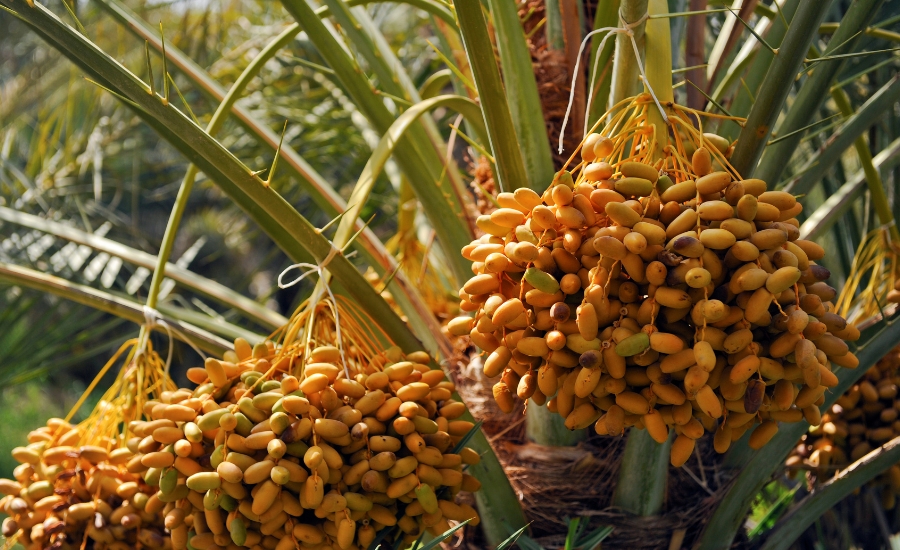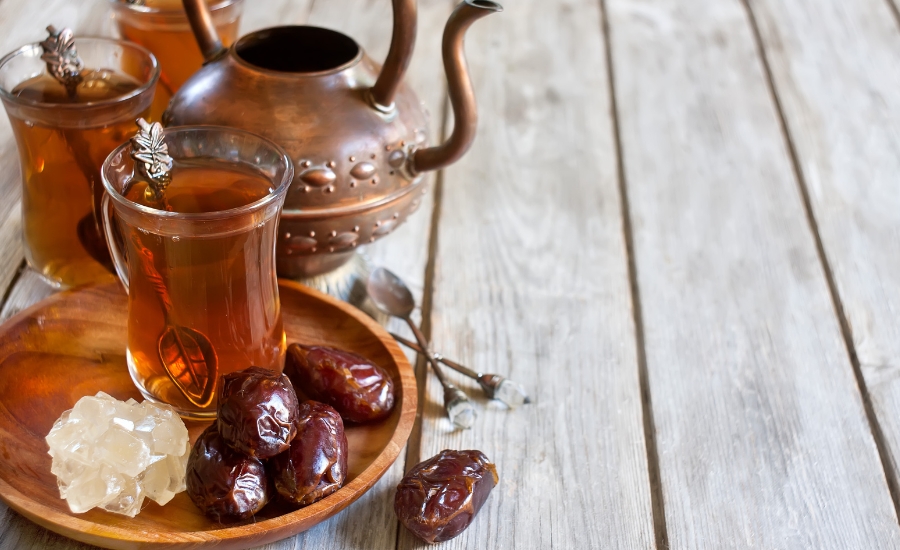Dates have gained universal appeal for their exceptional nutritional value, as well as their sweet flavor. These fruits are a staple in the Middle East and have surged in popularity across the globe thanks to their energizing qualities. A few dates can keep you feeling invigorated for hours, which is why they’re often bought in bulk, especially during Ramadan. Muslims worldwide traditionally break their fast with dates, appreciating their different varieties and health-improving properties.

Although high in natural sugars, these sweet fruits are packed with nutrients, making them a great alternative to refined sugars or sweets lacking nutritional value. Dates grow on date palms in small clusters and are usually harvested in the fall and early winter, providing the freshest taste during these seasons. The dried variety also has a long shelf life when stored properly.
Fasting of dates during the month of Ramadan
Breaking the fast with dates is a tradition during Ramadan, tied to spiritual significance and rooted in Hadith literature, which mentions that the Messenger of Allah (PBUH) broke his fast with ripe dates. Date palms have been cultivated in the Middle East for thousands of years, thriving in the hot, arid climate.
When fasting, it’s common to experience mild health conditions like low blood sugar, headaches, and lethargy. The nutrients in dates can help alleviate these symptoms while providing a source of energy. They also aid digestion and prevent stomach upset when consuming large amounts of food after fasting. Historically, dates are considered one of the oldest cultivated fruits, dating back approximately 8,000 years with over 200 known varieties, each rich in nutrition.
Health benefits of dates

Their health benefits make dates an essential part of a daily diet. The date palm (Phoenix Dactylifera L.), primarily grown in hot, dry locations in the Middle East and North Africa, provides nutrition, food security, and raw materials to the food industry. Dates are high in sugars like sucrose, fructose, and glucose. Fresh dates contain about 157 calories per 100 grams, while dried dates contain over 300 calories per 100 grams. They’re also rich in proteins, crude fiber, lipids, antioxidants, and vitamins (especially vitamin B), contributing to human dietary needs.
Date flesh contains between 0.2 and 0.5% oil, while the seed or pit contains 7.7–9.7%. The primary unsaturated fatty acids include palmitoleic, oleic, linoleic, and linolenic acids. Dates also have 23 different types of amino acids and small amounts of vitamins C, B(1) thiamine, B(2) riboflavin, nicotinic acid (niacin), and vitamin A.
Types of dates
Dates are categorized into four groups based on their sugar content. Each group has varying sucrose, glucose, fructose, and water content levels. Despite their differences, all dates provide substantial health benefits.
For over 5000 years, date palm trees have been a vital source of energy and nutrition security. They offer numerous health benefits, from their easily digested flesh and simple carbohydrates like fructose and dextrose to antioxidant flavonoids like beta-carotene, lutein, and zeaxanthin. Consuming dates helps protect cells from oxidation damage and can provide some protection against various types of cancer. They also assist in heart rhythm regulation and blood pressure management due to their potassium content.
Dates’ high phenolic content gives them anti-fungal, anti-bacterial, and anti-viral properties and the ability to prevent chronic inflammation. Their high fiber content can help prevent cardiovascular disease and regulate the immune system. Dates include various functional and bioactive substances such as carotenoids, anthocyanins, phenolics, antioxidants, and dietary fiber with anti-tumor, anti-ulcer, anti-microbial, and immunomodulatory characteristics.
Among the many dates available, Ajwa dates stand out for their unique properties. Ajwa is a delicate dry variety with a fine texture grown primarily in Saudi Arabia. This type is mentioned in the Hadith as one of the foods recommended in the Sunnah.

